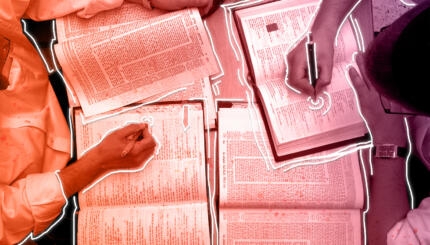Jewish Legal Theory
Seder Toharot (Ritual Purities)
Laws regarding purity and impurity may seem obscure to modern Jews, but the concepts give us a glimpse into a world where manifestations of death within life are not sanitized away.
Seder Moed (Appointed Time)
The order of the Mishnah that describes the customs, laws, and rituals of Judaism's holy days
Seder Kodashim (Holy Things)
The rabbis restored the religious meaning of the sacrificial cult even though the Temple itself had been destroyed.
Seder Nashim (Women)
Seder Nashim's primary concern is the protection of society's "exceptional" members.
Seder Zeraim (Agriculture)
Some of the mishnaic laws related to agriculture remain directly relevant for contemporary urban and suburban lives.
Seder Nezikin (Damages)
Universal interpersonal and societal issues, rather than Jewish ritual law, are the main subject of Seder Nezikin.
Maimonides on the Six Orders of the Mishnah
The sequence of the six orders follows the precedent of Scripture
The Mishnah as a Response to Catastrophe
The Oral Torah reflects an attempt to create an eternal Judaism, unaffected by the setbacks that had afflicted the Jewish people in the preceding two centuries.







